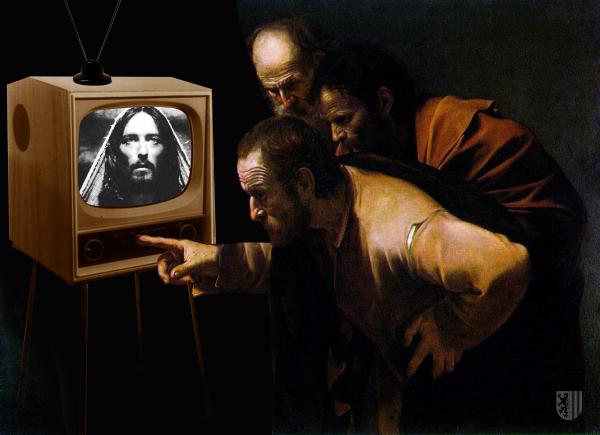 presence
presence Entries in presence (23)
Experience God's Presence: Five First Steps
 Tuesday, June 21, 2016 at 08:11AM
Tuesday, June 21, 2016 at 08:11AM  “Where can I go from your Spirit? Where can I flee from your presence? If I go up to the heavens, you are there; if I make my bed in the depths, you are there.” Psalm 139:7-8
“Where can I go from your Spirit? Where can I flee from your presence? If I go up to the heavens, you are there; if I make my bed in the depths, you are there.” Psalm 139:7-8
Living among a busy and distracted people followers of Jesus need to live in God’s presence. We do not need a theology of his presence: we need the experience of his presence. He is here, now. Are we awake?
The first step in experiencing the presence of God is to take the Biblical witness seriously. We are told time and again that God is near—why does he feel so far? Worse still we’ve trained ourselves to dismiss the scripture as inspirational thoughts rather than a description of reality. To know his presence we must honestly evaluate whether our daily life matches God’s revelation of the way things really are. In Biblical narratives, in its poetry, in the gospels and in its letters the plain message of scripture is that God is highly relational and desires us to experience an awareness of him daily. Do we really believe this or desire this? This question is vital, because believing is seeing.
Second, we should order our lives in ways that allow us to experience his presence: we must train ourselves to recognize his presence. The spiritual practices of silence and solitude do not conjure up God’s presence; they help us awaken to God’s presence. In our day, more than any other time in history, there are distractions from the moment we wake until we fall asleep. Elijah found the presence of God in a “still small voice,” or as another translation pus it, “a gentle whisper.” (I Kings 19: 12) Most believers think prayer is talking to God, and it is—but only in part. The larger part is listening to him. Have you ever prayed without saying a word, but simply sitting in silence, tuning your ear to that gentle whisper? Why not seriously try silence and solitude for just ten minutes, or an hour—or a day! This is not mysticism; it is relationship.
Third, we should consider the joyful example of others. Throughout history the witness is consistent, that those who have been most aware of God’s presence have experienced a joy and peace that flow from life with him. Brother Lawrence, a 17th century Carmelite, discovered that daily activities did not have to block his awareness of God’s presence. He experienced “little reminders” from God that “set him on fire to the point that he felt a great impulse to shout praises, to sing, and to dance before the Lord with joy . . . the worst trial he could imagine was losing his sense of God’s presence, which had been with him for so long a time.” John Wesley, a buttoned-down English cleric, had experiences of God’s presence that changed his life and ministry. Wesley shared that God sent him “transports of joy” again and again. His case is particularly instructive today because in North America many church leaders emphasize scholarship over feelings, but Wesley had received the finest religious education his country could offer but he did not personally experience God’s presence until after he felt his heart “strangely warmed.” Those who would dismiss joyful behavior as mere emotionalism somehow fail to brand depression and despair as equally emotional expressions as the lack of God’s presence. The testimony of scripture is “you will fill me with joy in your presence, with eternal pleasures at your right hand.” (Psalm 16: 11)
Fourth, we need to consider more than our individual response to the presence of God. His presence has implications for our life together as the church. Together we are the people of God; he longs to bestow his presence on the assembled church. It is popular in our day to embrace Jesus and shun the church. Popular, but incorrect. For example, suppose I were to enter into a relationship with you, but refuse any relationship with your spouse. Would you accept friendship on these terms? “I like you, and I want to be with you, but please keep your spouse far away from me!” Such a friendship would be in peril from the beginning, and we put our relationship with Jesus in peril if we openly reject his bride.
Finally, there is one more expression of God’s presence available for disciples today—the power of God. John Wimber, founder or the Vineyard movement, said that power of God is in the presence of God. For those Christians who embrace the possibilities of miraculous signs and wonders in ministry, the secret is not to seek some special spiritual empowerment, but rather the tangible presence of God.
The earliest followers of Jesus understood that their beliefs had no authority in the world unless the presence of God was demonstrated after they proclaimed the coming of God’s Kingdom. In addition to forgiveness and reconciliation, the miracles of healing and liberation from demonic oppression authenticated the preaching of the gospel of the Kingdom of God. Those who heard the message of the Kingdom of God also witnessed the presence of God in their midst.
This short list is not complete. They are a starting point. Why not re-think your life in terms of this five suggestions: take the witness of the Bible seriously; order your life in a way to let him in; embrace joyful thanksgiving as a path to his presence; look for him in the church; and understand the connection between his presence and his power.
Here ends the lecture: let the lab begin!
By the Power of Zod
 Monday, March 10, 2014 at 09:45PM
Monday, March 10, 2014 at 09:45PM  The thing about my life is I’m not very well connected. You know what people say, “It’s not what you know, it’s who your know.” What I need are powerful friends. People in high places who can make things happen. Movers. Shakers. Rainmakers. Someone strategically placed who—with just a word—change things.
The thing about my life is I’m not very well connected. You know what people say, “It’s not what you know, it’s who your know.” What I need are powerful friends. People in high places who can make things happen. Movers. Shakers. Rainmakers. Someone strategically placed who—with just a word—change things.
I know what you’re thinking: this blog is called Students of Jesus, so this tart opening paragraph is setting us up for Jesus, the guy in the highest place. The First Mover and Final Shaker. One word from him is enough to call twelve legions of angels, which tops out north of 60,000 supernatural beings. The very mention of his name resounds in deaf ears and causes blind eyes to see. Jesus is the ultimate friend in high places. But no. Not today. That would be a no-brainer blog, even though that’s all true about Jesus.
I’m held up by the paradox of his final instructions to us, that famous passage we’ve come to call the Great Commission. We all know the part about making disciples, and I’ve written previously about the hidden verses that set up the commission. But this time, I’m struck by the contrast between his power and the way he wants to help us.
“All authority in heaven and on earth has been given to me,” he tells us. Then he gives us the vision. “You guys go and make disciples.” And perhaps most strikingly, he finishes with this assurance: “surely I am with you always, to the very end of the age.”
There are two challenging notions calling us to come wrestle. First, the most connected guy in all creation gives the most important work to . . . us! Second, he guarantees neither victory nor inside muscle, but only his presence. (I know what you’re thinking again, because my inner Charismatic side is screaming, “but there’s power in his presence!” but put on the wrestling spandex just long enough to grapple with these issues.)
Why us? Couldn’t he do it himself? He’s already saved the world; gathering in disciples would be a snap for him. I think Jesus realizes there’s something left undone in us until we ourselves make disciples. Until we ourselves struggle with teaching others how to obey everything he commanded. Anyone can point to the rulebook and say, “Do this stuff,” but it requires a deep, personal, inner change to be able to say, "Come with me and I’ll show you how it’s done."
And if “all authority” belongs to Jesus, why doesn’t he simply say the word? Here’s what I think: Jesus demonstrated that leadership is about presence, not authority. We’re drawn to a view of power that resembles the cheesy Superman movie of the ‘70’s where super spaceman General Zod commands the people of earth, “Bow! Kneel!” Meanwhile the true power of the universe whispers, “Go ahead, give it a try, I’ll be with you.” We would like to wield General Zod’s name and get instant results! Instead, Jesus wants to live through clay vessels, cracked and fragile, which leak the most powerful substance in the universe: God’s loving presence.
Which do you think is easier? And why (I’m asking) would our Father choose to do it this way?
Can You See the Air?
 Thursday, February 27, 2014 at 03:38PM
Thursday, February 27, 2014 at 03:38PM  It was sometime during elementary school, but I still remember that moment when I first realized I was surrounded by . . . air! I wasn’t surrounded by nothing, I was surrounded by something. The wonder carried me away: I was swimming through the air. If I raised my arm above my shoulder, it meant the air around me was moving, too.
It was sometime during elementary school, but I still remember that moment when I first realized I was surrounded by . . . air! I wasn’t surrounded by nothing, I was surrounded by something. The wonder carried me away: I was swimming through the air. If I raised my arm above my shoulder, it meant the air around me was moving, too.
My childish imagination kicked in strong: what would it be like to see the air, cool blue and warm red? Was I breathing colors? I saw it with my imagination: inhale a faint celestial blue and exhale rose-colored pink. I could see the air move and mix and blend, or watch it settle, still and motionless, level as a lake. My head was filled with Impressionist masterpieces, the sky swirling with hues and shades too subtle for those in a hurry, but a rainbow for those with eyes to see.
But before long higher education crushed my wonder. In science class I learned about air pressure and wind resistance. The beauty of my childhood faded into the orthodoxy of physics, climate, and chemistry. The atmosphere became one more domain to be studied and measured.
Until one day. (I remember this day as well.) I read the amazing words of Paul as he addressed the skeptical, logical people of Athens, that city where diplomats and philosophers gathered on a hill named Mars, for the God of war. Paul quoted a Greek mystic from centuries before, and I saw the invisible God in much the same way I had imagined how the air must be:
“ . . . For in him we live and move and have our being.” (Acts 17:28)
The child in me was released again. I saw again the living, moving, breathing God! How could I avoid him—and more important: how could I have missed him? When I walk from the bedroom to the kitchen, I walk through God. When I walk into a new situation, God is there, waiting for me. Even the darkness is light to him. He inhabits the day and the night. Intuitively I understood a distinction: everything is not God, but God is in everything. True, the theologians had already told me God was omnipresent, but in doing so they reduced him to a concept I could memorize and recite. But I do not need lifeless facts; I need him.
“He is not far from each one of us.” The vast Creator surrounds us like the air. We breathe the air. It penetrates through our lungs to our very blood, and the blood delivers it to every cell. God himself is the life-giving air. Our vast swirling God is also intimate enough to be with each of us.
I used to think silence meant God was not speaking. Now, in the silence, he’s all I hear. We need not go anywhere to find him, because the slightest shift of our gaze reveals his nearness. If I am alive, if I move, I am encountering him. In every part of my being, he is here. Can you see the air?
Jesus, the Accessible Leader
 Thursday, January 3, 2013 at 02:46PM
Thursday, January 3, 2013 at 02:46PM  . . . And then there’s the time my bad hearing caused three bruises on my arm. I was standing in front of a judge, trying to talk my way out of a speeding ticket. At the very end of the conversation the judge said something, but I couldn’t understand her. I thought she wanted me to step closer. I took two steps forward when suddenly the bailiff grabbed my arm and pulled me to the side. The next day three bruises blossomed on my arm, where the guard had grabbed me. I didn’t get out of the ticket.
. . . And then there’s the time my bad hearing caused three bruises on my arm. I was standing in front of a judge, trying to talk my way out of a speeding ticket. At the very end of the conversation the judge said something, but I couldn’t understand her. I thought she wanted me to step closer. I took two steps forward when suddenly the bailiff grabbed my arm and pulled me to the side. The next day three bruises blossomed on my arm, where the guard had grabbed me. I didn’t get out of the ticket.
Go ahead: just try to get close to someone important. Movie stars and athletes have their handlers. Politicians have armed guards. CEO’s are shielded from phone calls, emails, and sit in corner offices you cannot reach by a public elevator. In our day, one of the markers of leadership is in-accessibility.
Not so with Jesus. Yes, I know--it was a different place and time. But the important people of his day were equally distant. Caesar had his armies. Pilate had his centurions. The High Priest of Israel was surrounded by his religious associates and armed guards. Each of these men had the power to summon others before them, and each had the ability to hold anyone at a distance. Jesus accurately described his century--and ours--when he said, “The kings of the Gentiles lord it over them; and those who exercise authority over them call themselves Benefactors. But you are not to be like that. Instead, the greatest among you should be like the youngest, and the one who rules like the one who serves. For who is greater, the one who is at the table or the one who serves? Is it not the one who is at the table? But I am among you as one who serves.”
The gospels reveal a remarkably accessible Lord. A sick and elderly woman could press through the crowd and touch him. A woman of questionable character could crash a dinner party and weep at his feet. Lepers had access. A desperate father could bow before him. Even when Jesus wanted to slip away for some private moments the crowd would follow him--and he would feed thousands.
Matthew’s gospel calls reveals his openess from first to last: at the beginning of the gospel Jesus is labeled “Immanuel,” God with us. In the very final chapter, even as Jesus is leaving the planet, he makes this promise. “Surely I am with you always . . .” Here is a staggering revelation: the very one with all authority in heaven and earth is also the one who is always available. He will allow nothing to keep him from us. Not the powers of this world, nor the rules of religion, nor even our own wayward, screwed-up lives. In the words of some eloquent speaker, “Jesus left the most exclusive gated-community in all creation in order to be with us.” Nor is this a history lesson--it’s true today as well.
The lessons of his accessibility are two-fold.
First, who can keep us from the love of God? The Apostle Paul runs out of words when he tries to describe God’s open-door policy. “Who shall separate us from the love of Christ? Shall trouble or hardship or persecution or famine or nakedness or danger or sword?” Not even the violence and cruelty of others can keep him away.
Second, Jesus demonstrated that true leadership is about presence, not authority. Though he had all authority, he chose instead to be with us. One of the tests of leadership is the grace to endure countless interruptions, because we serve those we lead.
What Jesus does supernaturally he first did day-to-day. He was with us. And he is still.
The Distance Between Me and God
 Thursday, October 25, 2012 at 12:03AM
Thursday, October 25, 2012 at 12:03AM  "God did this so that they would seek him and perhaps reach out for him and find him, though he is not far from any one of us. ‘For in him we live and move and have our being.’" (Acts 17:27-28)
"God did this so that they would seek him and perhaps reach out for him and find him, though he is not far from any one of us. ‘For in him we live and move and have our being.’" (Acts 17:27-28)
These words ring in my ears, “he is not far from any one of us.” What is the distance between you and God? Not far. So many of us have been told there is chasm between Holy God and sinful man, and I’m sure that’s true in some respect. Yet Paul spoke these words to people who did not care whether Paul’s God was real or not. He spoke to pagans who had no regard for the holiness of the God of Israel or his son, Jesus. He told them that God was behind the events and identities of their lives and working in everyday situations in order to encourage them to turn his direction.
What is the distance between you and God? How far do we have to go to connect with him? Not far. It turns out that each day we live, we move, we take our steps, breath our breaths, we run our errands and do our jobs and live our lives--and all the while he is not far from any one of us. Do we know this? Do we feel it? If he is not far, how far must we go to connect with him?
How can we make space for him? The answers are as practical--and unique--as our daily routine. John Wesley was one of 19 children; his mother, Susannah, made space for God by pulling her apron over her head and taking a moment to pray. How can we make space for him? I have a friend who takes a ten-minute retreat from everything, including his own thoughts, just to sit in silence with God. I have another friend who uses a scripture reference as his computer’s password; each time he logs on he recites the verse and asks for God’s help in his work. Bill Johnson, pastor of Bethel church in Redding, CA suggests, “Since you can't imagine a place where he isn't, you might as well imagine him with you.”
Whatever we may think the distance is, the testimony of the scripture is that he is not far from us. No one is excluded. How far do we need to turn? Some things we can only learn by doing. We will discover personally that the answer is “Not far.”
As I considered my need for presence of God I turned to John’s gospel. At the very beginning I was arrested by a tiny word. It caused me to put down the book and worship with a fresh heart. My cup of wonder, amazement and gratitude was dripping from the rim again. I was reading along at the beginning of John’s gospel when a simple two-letter word rocked my world. Perhaps it will mean nothing to you, but for me the lightning flashed and the thunder followed when I read the word, “he.”
In the beginning was the Word, and the Word was with God, and the Word was God. He was with God in the beginning. Through him all things were made; without him nothing was made that has been made. In him was life, and that life was the light of all mankind. The light shines in the darkness, and the darkness has not overcome it. (John 1:1-5)
Did you see it? The Word, the Life, the Light is also a Him. He is alive and personal.
It’s risky to share your personal response to scripture. Huh? Others say. Yeah, so, what’s the big deal?
Like so many passages in the Bible, I am tempted to think I already know the truth: until the truth breaks into the room and becomes alive. What before had been only an idea came and sat by my side. The ink on the page is a mere cipher, a code devised by the cunning of men. When the true word was spoken the universe began to spin. There was no air to carry the sound. There were no ears to hear the command. There was simply the Word. And the Word was a Person. Personal. Real. Relational. Alive. All I needed to do was make space for him--not my ideas about Jesus, not my knowledge of him.
For me, the big deal is the amazing metamorphosis from Word to Person. Too often what passes for faith lives only in my head--the paltry collection of thoughts from (honestly) a bear of very little brain. I suspect the Word became flesh and lived among us, in part, to reinforce that brains have very little to do with real life. He is the source of life.
Do you want to experience his presence? Stop reading. Turn away from the screen, turn off the music, and invite him into the room. You won’t have to wait long.

